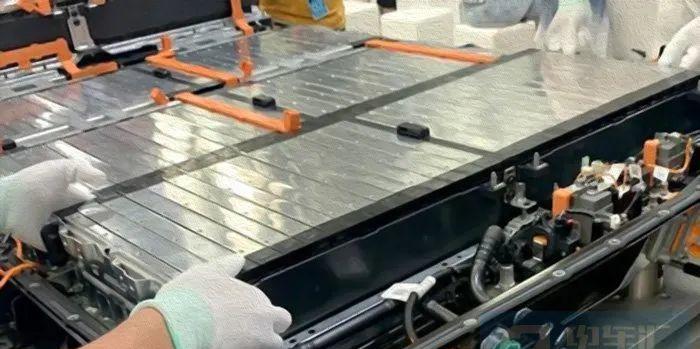
Tramway news: Today, the Ministry of Industry and Information Technology and other eight departments jointly issued the "Implementation Plan for Accelerating the Comprehensive Utilization of Industrial Resources". The plan proposes to improve the management system and strengthen the traceability management of the whole life cycle of new energy vehicle power batteries. Promote upstream and downstream cooperation in the industrial chain to build recycling channels and build a cross-regional recycling system. Promote the application of waste power batteries in the fields of power backup, charging and replacement. A number of cascade and recycling demonstration projects will be built in key areas such as the Beijing-Tianjin-Hebei Region, the Yangtze River Delta, and the Guangdong-Hong Kong-Macao Greater Bay Area. Cultivate a number of echelon and recycling backbone enterprises, and increase the research and development and promotion of power battery nondestructive testing, automated dismantling, efficient extraction of valuable metals and other technologies.
The national ministries and commissions clearly give the power battery ladder utilization application scenario behind the explosive growth of new energy vehicles, according to the data of the Association of Automobile Associations, new energy vehicles retailed 2.989 million units last year, an increase of 1.88 million units compared with 1.109 million units in 2020, an increase of 169.1% year-on-year.
With the growth of sales of new energy vehicles, the installed capacity of power batteries continues to rise, and the problem of waste power batteries has also attracted attention. According to data from the China Automotive Technology and Research Center, the number of new energy vehicles in China has reached 4.92 million in 2020, and the cumulative number of decommissioned power batteries is 200,000 tons (about 25GWh). In 2025, the capacity of waste power batteries that mainland China needs to recycle is expected to reach 137.4GWh, more than 5 times that of 2020.
At present, the disposal of power batteries mainly has two directions, one is the use of cascade, and the other is recycling.
The "retirement" of batteries on new energy vehicles does not mean that the potential of batteries has been exhausted. On the contrary, the new energy power battery retired from the first line still has great potential for recycling and reuse, that is, cascade utilization. Decommissioned batteries that cannot reach the value of cascade utilization can be dismantled and reorganized to extract expensive metal materials such as cobalt and nickel from the battery, and make products such as lithium carbonate, which can be used again for the production of new batteries to realize the recycling of resources.
The plan released by the Ministry of Industry and Information Technology and 8 national ministries and commissions gives a clear application scenario for the echelon utilization of power batteries: in the field of power backup and charging and replacement.
For the management of power battery recycling, since 2012, the mainland has successively issued a number of important laws and regulations related to power battery recycling, the most important of which is the "Interim Measures for the Management of New Energy Vehicle Power Battery Recycling" issued by the Ministry of Industry and Information Technology in 2018, in this management measure, the extended producer responsibility system (EPR) for power battery recycling has been clearly stipulated, and new energy vehicle companies bear the main responsibility for power battery recycling. Relevant power battery manufacturers and recycling companies must also assume the obligation to cooperate and coordinate.
In 2016, the General Office of the State Council issued the "Notice of the General Office of the State Council on Printing and Distributing the Implementation Plan of the Extended Producer Responsibility System", which emphasized that "the establishment of an electric vehicle power battery recycling system, electric vehicles and power battery manufacturers should be responsible for establishing a waste battery recycling network, power battery manufacturers should implement product coding, and establish a full-life cycle traceability system." ”
In 2018, the Ministry of Industry and Information Technology's "Interim Measures for the Management of The Recycling and Utilization of New Energy Vehicle Power Batteries" clarified that automobile manufacturers will assume the main responsibility for power battery recycling, and vehicle companies are also successively laying out battery recycling business, setting up recycling outlets in 4S stores across the country. According to the latest data from the Ministry of Industry and Information Technology, there are 14,899 power battery recycling service outlets nationwide, and this data continues to grow rapidly.